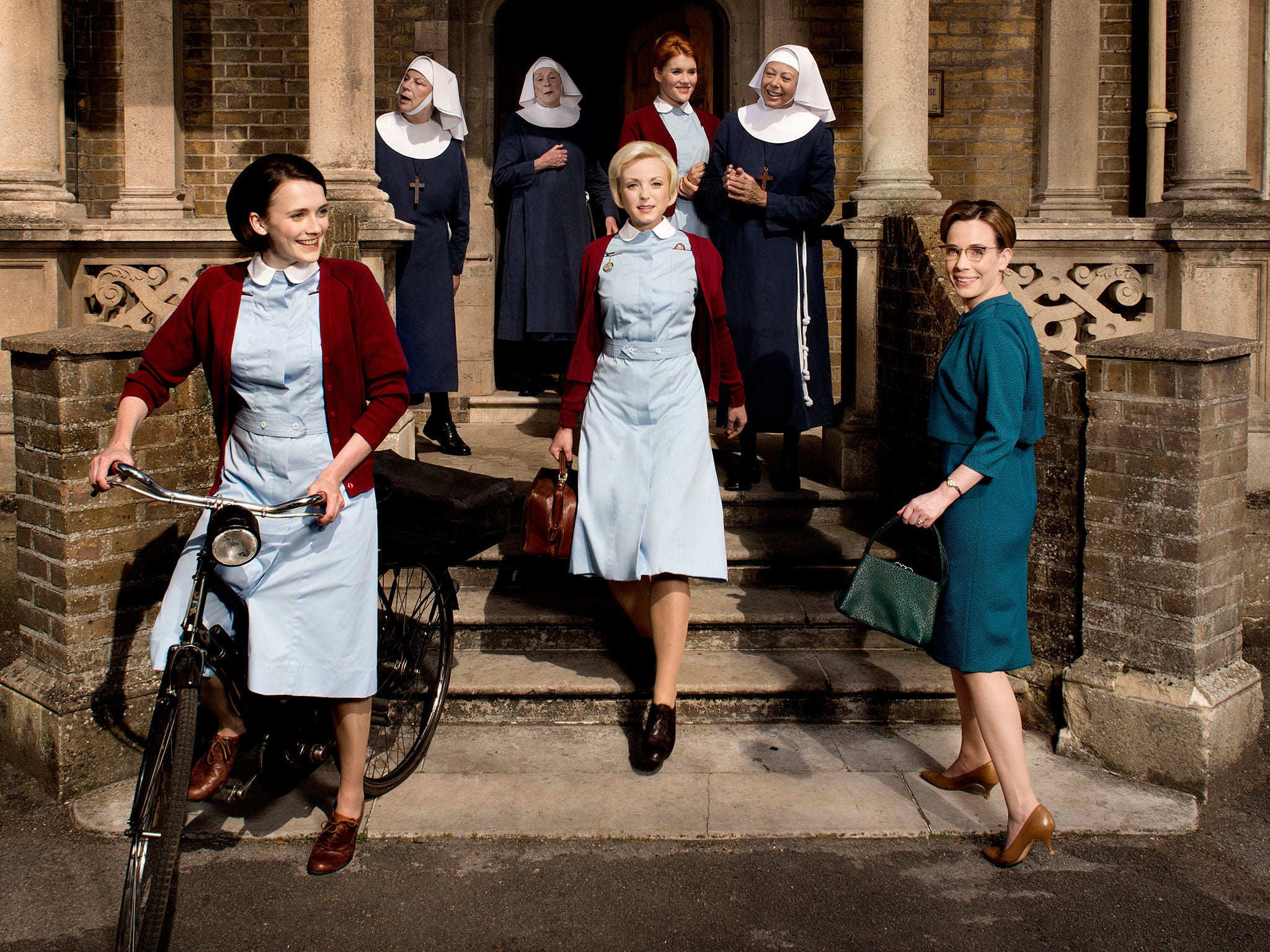Call the Midwife, BBC1 - review: Cosy sister act with dose of realism makes welcome return
Combines its comforting predictability with moments of relevant insight

Your support helps us to tell the story
From reproductive rights to climate change to Big Tech, The Independent is on the ground when the story is developing. Whether it's investigating the financials of Elon Musk's pro-Trump PAC or producing our latest documentary, 'The A Word', which shines a light on the American women fighting for reproductive rights, we know how important it is to parse out the facts from the messaging.
At such a critical moment in US history, we need reporters on the ground. Your donation allows us to keep sending journalists to speak to both sides of the story.
The Independent is trusted by Americans across the entire political spectrum. And unlike many other quality news outlets, we choose not to lock Americans out of our reporting and analysis with paywalls. We believe quality journalism should be available to everyone, paid for by those who can afford it.
Your support makes all the difference.Nonnatus House was aquiver with anticipation as series four of Call the Midwife began last night. Fresh Meat fans might have been excited too, since the new arrival, Nurse Barbara Gilbert, was played by Charlotte Ritchie, brilliant as Oregon in the student sitcom, but last seen in BBC3’s disappointing Siblings.
In fact, this new midwife was a lot like the old one, Cynthia, who left to become a nun in the Christmas special: meek, yet determined to make a difference and given to charming incidents of clumsiness. At least she’s another brunette, which will help distinguish her from the blonde (Helen George) and the redhead (Emerald Fennell). We’ll have to wait till next week, when Nurse Phyllis Crane (Linda Bassett) turns up for some real variety.
Call the Midwife’s chief appeal is its cosy predictability, but it can also surprise with moments of relevant insight, despite the period setting. When Shelagh attempted to hold a clinic on formula milk, it soon descended into the kind of breast-feeding row most modern mothers will recognise – and when Trixie was called to deliver a baby in the back of a cab, Sister Evangelina blamed the trend for hospital births. “We’ll see more and more of this unless we can persuade women they’re better off at home,” she huffed, as if reading from current NICE guidelines.
Bad things happened in the East End in 1960, but the midwives were part of a caring community that could soothe all ills. It was such a comfort to know that the horrible home for knocked-up teens will be whipped into shape by Chummy (Miranda Hart), and that a grubby young urchin like Gary will eventually fall into the care of a nice man like PC Peter (Ben Caplan).
Then came another one of Call the Midwife’s surprising detours into gritty realism. Vanessa Redgrave’s doleful narration informed us that Gary and his siblings had been sent to Australia under the Child Migrant Programme. We now know that this was a scheme that robbed as many as 150,000 British children of their childhoods. “They were promised a life of sunshine, blue skies and endless opportunities,” said Vanessa, “but the truth was otherwise, and the only consolation is that hope made them happy for a while.”
This weekend we also bade reluctant farewell to Foyle’s War, after eight series and countless Second World War spivs banged to rights. At least this means there’s more time to invest in contemporary-set cop shows we may have overlooked, like Spiral, now on its fifth season on BBC4.
For some reason, this Paris-set series has missed out on the praise lavished on other foreign-language crime imports. It deserves more. Spiral is so on the ball that it covered home-grown terrorism and a workplace attack last series, long before the recent horrible events in France.
This time the same great characters are enmeshed in another complicated web of crime centring on a double murder. There’s Roban, the white-haired wizard of a judge, politely rooting out police corruption one bon mot at a time, and Caroline Proust as Laure Berthaud, a pleasingly dishevelled female detective who always acts on her hunches.
When Berthaud’s suspicions led her to be violently attacked by a teen gang, she was only disappointed that the attack wasn’t more brutal. “Those bitches might have spared me a trip to Holland,” she said, referring to her planned pregnancy termination. “No such luck.” Bleak but brilliant.
Join our commenting forum
Join thought-provoking conversations, follow other Independent readers and see their replies
Comments